The Best Guaranteed Business Credit Card Approval Options
Author: Nick Alex Gallo
February 18, 2025
10 min read
TABLE OF CONTENTS
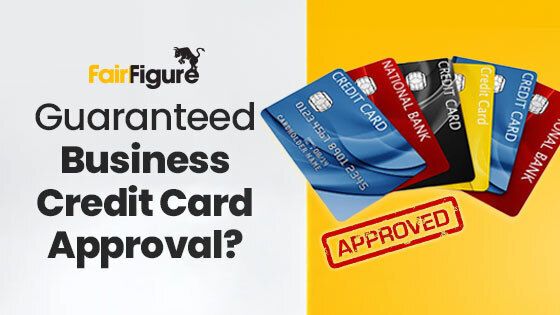
Start your credit building journey for your business

In the financing world, the phrase “guaranteed approval” should set off your alarm bells. No legitimate creditor can guarantee you a business credit card or any other form of funding. They must take steps to mitigate their risk, making guarantees impossible.
However, creditors like FairFigure come close to this, using alternative strategies to assess creditworthiness and mitigate their potential downside.
That makes it possible to extend credit to applicants who might otherwise struggle to qualify for a business credit card.
An All-but-Guaranteed Business Credit Card Approval: The FairFigure Capital Card
Guaranteed business credit card approval may not exist, but the FairFigure Capital Card offers the next best thing. To qualify, you only need to meet a handful of requirements, none of which involve your personal or business credit:
- Time in business: Your company must be at least three months old.
- Recurring revenues: You must be able to demonstrate at least $2,500 in monthly recurring revenue (MRR).
- Taxpayer ID number: You must have an Employer Identification Number (EIN) for your business.
While FairFigure does collect your Social Security number (SSN), we don’t conduct a personal credit check or require a personal guarantee. We only use it for Know Your Customer (KYN) and Anti-Money Laundering (AML) purposes, so applying doesn’t affect your personal credit score.
Unlike charge cards and secured credit cards, which use a security deposit to minimize the issuer’s risk, the FairFigure card doesn’t require you to provide cash upfront either.
Instead, we analyze your business finances and extend credit based on your projected revenue by discounting them to a present value. You can select the payback term that works best for you, and we fund the amount to your card for immediate use.
Sign up today to apply for a business credit card with EIN only.
Factors To Improve Your Credit Card Approval Odds
Properly Set Up Business
Setting up your business fundamentals properly can make you appear more established and improve your credit card approval odds. Here are some steps to take:
- Secure an EIN: This helps establish your business as a separate entity. You should get one automatically when you form a corporation or LLC, but you can also request one as a sole proprietor.
- Request a DUNS Number: A DUNS Number is a unique identifier for your business in the Dun & Bradstreet (D&B) system. Requesting one helps open your D&B business credit file.
- Open a business bank account: Having a separate business bank account further establishes your business. It also helps streamline your bookkeeping processes.
Banks use data repositories like ChexSystems to track your banking history. Creditors may also reference them when you apply, so try to keep your bank account in good standing by avoiding overdrafts.
Time in Business
While there isn’t much you can do to improve this aspect of your application, credit card issuers often require applicants to meet a minimum time-in-business threshold. For example, you need three months of business history to qualify for a FairFigure card.
This threshold varies between providers, but you can generally expect it to be an issue for the first two years of your business. After that, your business is typically well-established enough to satisfy even traditional financial institutions.
Business Revenue
Healthy top-line revenue numbers help demonstrate to credit card issuers that your business can afford to repay its credit obligations. For example, they may ask for the following when you apply:
- MRR
- Gross annual revenue
- Profit and loss statements
- Cash flow statements
- Bank statements
As a result, anything you can do to boost your financial performance will typically have a positive impact on your application chances.
Even if creditors don’t ask for proof of your earnings, make sure to report them accurately. Misrepresenting your business income technically constitutes fraud and can lead to denial or even legal issues if discovered.
Personal Credit
Many business credit card issuers make every small business owner sign a personal guarantee. If your account ever goes into default, that gives them the right to pursue your personal assets to recover their losses.
As a result, they’ll typically consider your personal credit history during the application process, even though you’re applying for a business credit account.
If you can improve your personal credit score, it can significantly increase your chances of securing a business credit account. Typically, the most impactful steps you can take are to make payments on time and reduce your outstanding debt levels.
Business Credit
Unsurprisingly, credit card issuers often consider any business credit history you have when you apply. As a result, it’s in your best interest to establish tradelines that report to the major business credit bureaus: D&B, Equifax Business, and Experian Business.
FairFigure’s business credit monitoring subscription is invaluable during the business credit-building process. Not only does it grant you access to each business credit bureau’s credit reports and scores, but you’ll also get:
- Access to the FairFigure business credit builder card
- Our proprietary Fundex Score and Foundation Report
- A business credit corrector tool to streamline disputes
- Personal credit monitoring with Experian, Equifax, and TransUnion
We (will soon) report the card and your monthly subscription to Dun & Bradstreet, Equifax Commercial, and Creditsafe business credit reports and scores. We also provide access to FairFigure's in house Foundation Report (w/corresponding score).
The Best Easy Approval Business Credit Cards
1. Capital One Business Credit Cards
Capital One has a reputation for being more forgiving than other small business credit card issuers when it comes to your credit score.
You may be able to qualify for an account with even a fair personal credit rating, which refers to a FICO score of 580 to 669. Capital One has a business credit account specifically for fair credit borrowers, designed to help you build business credit with responsible use. Known as the Spark 1% Classic card, the account offers unlimited 1% cash back with no annual fee.
If you’d like to take your chances with one of Capital One’s best business credit cards, here are some more rewarding options to consider:
Spark 2x Miles: 2x miles on every purchase, plus 50K bonus miles when you spend $4500 in the first three months. No fee for the first year but a $95 annual charge afterward. Spark 2% Cash: 2% cash back on every purchase, plus $750 cash back when you spend $7,500 in the first three months. No annual fee for the first year but a $95 annual charge afterward.
Note that while Capital One may have relatively relaxed standards compared to other major credit card companies, it states you need excellent credit for these accounts.
It describes that as someone who has never defaulted, declared bankruptcy, or been more than 60 days late on a payment and has had a loan or credit card for more than three years with a credit limit above $5,000.
2. Revenued
Traditional business credit cards primarily consider your personal and business credit scores, making it difficult for those without good credit to qualify. In contrast, Revenued focuses on your business bank account activity, like FairFigure.
Instead of offering a standard credit limit, it uses a revenue-based financing structure. Put simply, Revenued buys a portion of your future receivables in exchange for working capital upfront, then charges you a factor rate on the back end.
Applying doesn’t involve a personal credit check and won’t affect your FICO Score. To qualify, your business needs:
- At least 12 months in business
- A U.S. business location
- A dedicated business bank account
- Fewer than 3 days of negative balances per month
In addition to the relatively easy approval, one of the primary advantages of the Revenued card is near instant approval. You typically receive a decision within an hour and access to your funds within 24 hours of account opening.
3. Business Gas Cards
Business gas cards, or fuel cards, can provide an easier path to credit than standard business cards. They typically require some business credit history but may not ask for a personal guarantee or personal credit check if you meet certain revenue thresholds.0
Even when they do, gas cards tend to have lower expectations. You can generally only use them for gas and fuel-related purchases, so they pose less of a risk to issuers than general-use business cards.
For example, one business gas card to consider is the Shell Small Business Card. You can apply with your EIN only and avoid personal liability if you have at least $1M in annual revenue.
For the first six months, it offers 25 cents back per gallon on your first 6K gallons per month at Shell stations. Otherwise, you earn tiered rewards up to 6 cents back per gallon on up to 20K gallons per billing cycle.
You’ll also get 15% off at participating Jiffy Lubes, and Shell reports the card to all three major business credit bureaus.
Note that the Shell Small Business Card lets you carry a balance from month to month, but some gas cards require you to pay back what you owe at the end of each period.
4. Corporate Charge Cards
Corporate charge cards also offer relatively easy approval compared to traditional business cards.
Not only do they typically focus on your financial qualifications rather than your credit history, but they also prevent you from carrying a balance over between periods, greatly limiting the issuer’s risk.
These corporate cards have become increasingly common in recent years, so there’s no shortage of options to consider. For example, some popular ones include:
- Ramp Corporate Card
- Brex Card
- Rho Corporate Credit Card
- Stripe Corporate Card
- BILL Divvy Card
While these accounts do compete on cash-back rewards, the more significant differentiator is often the expense management solutions they’re attached to, which offer features to help you track and control spending across your company.
For example, that often includes unlimited virtual employee cards, customizable spending limits, and automated bookkeeping tools.
5. Secured Business Credit Cards
Secured business credit cards require you to provide a security deposit, typically equal to the card’s credit limit. That way, if you default, the creditor can use the cash you provided them to cover their losses.
Because of that safeguard, secured cards are much easier to qualify for than unsecured credit cards. In fact, they’re often intended to help borrowers with bad credit or no credit establish a tradeline and payment history.
Secured cards are more commonly offered to consumers than businesses, but there are still plenty of options. For example, some to consider include:
- Valley Visa Secured Business Credit Card: 0% intro APR for your first six months, no annual fee, and 1% cash back on purchases. However, you must put down 110% of your credit limit.
- Hello Alice Small Business Secured Mastercard: 0% intro APR for the first nine months, no annual fee, and 1% cash back on purchases. In addition, credit limits can reach $25K, which is higher than other secured cards.
- Bank of America Business Advantage Unlimited Cash Rewards Secured Card: 1.5% cash back on purchases and no annual fee, plus a low minimum deposit of $1,000 and free access to a free business credit report from D&B.
Once you’ve shown your credit card issuer that you can use a secured credit card responsibly, they often will consider upgrading you to an unsecured account. If they do, you’ll get back whatever cash you provided as a deposit.
If you’re worried about potentially damaging your personal credit score, consider using business credit cards that do not report to personal credit bureaus.
More articles
Read More >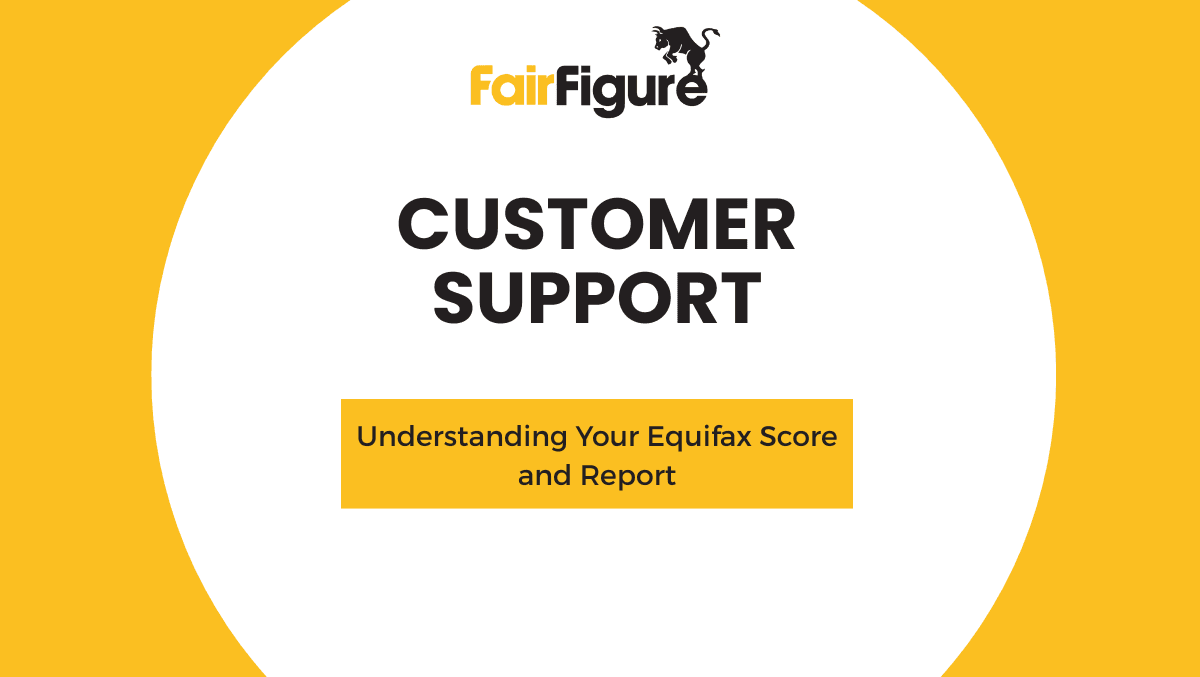
January 09, 2026
2 min read
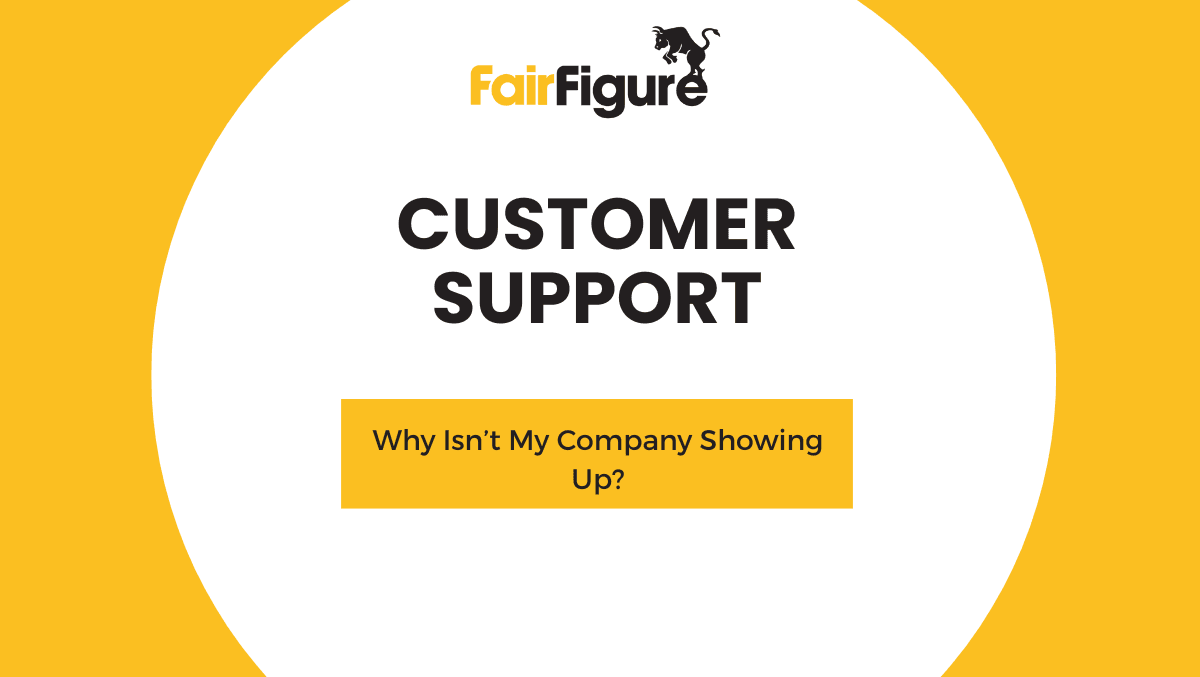
January 09, 2026
2 min read
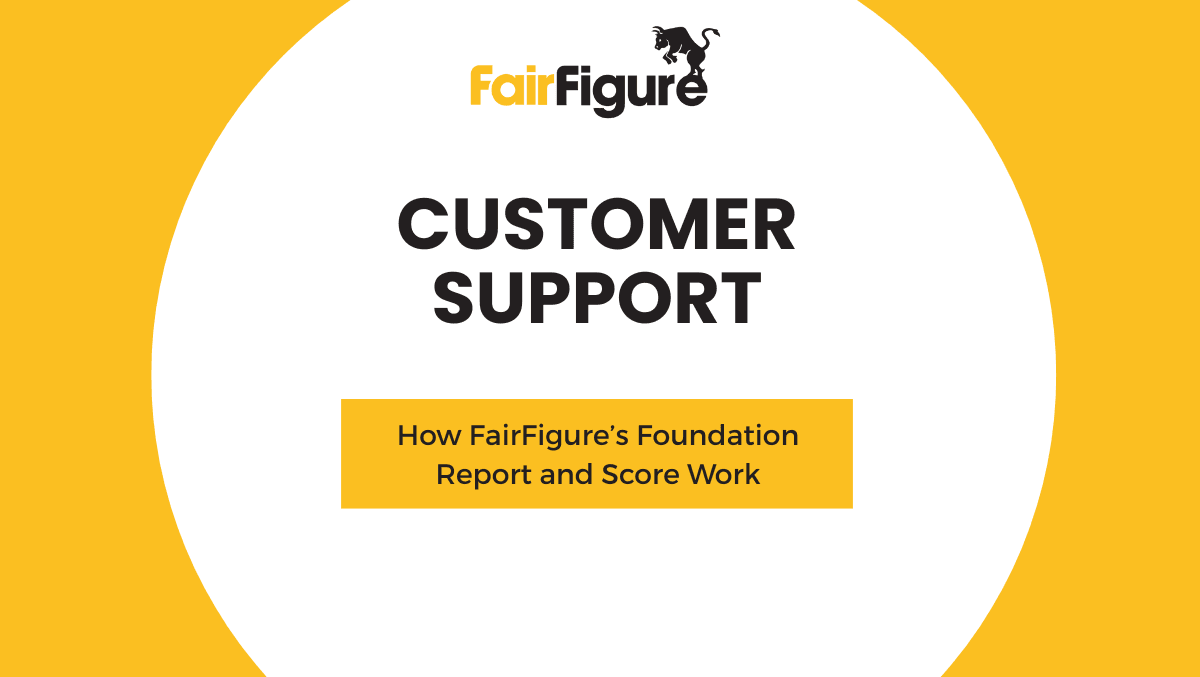
January 09, 2026
2 min read

Start your credit building journey for your business
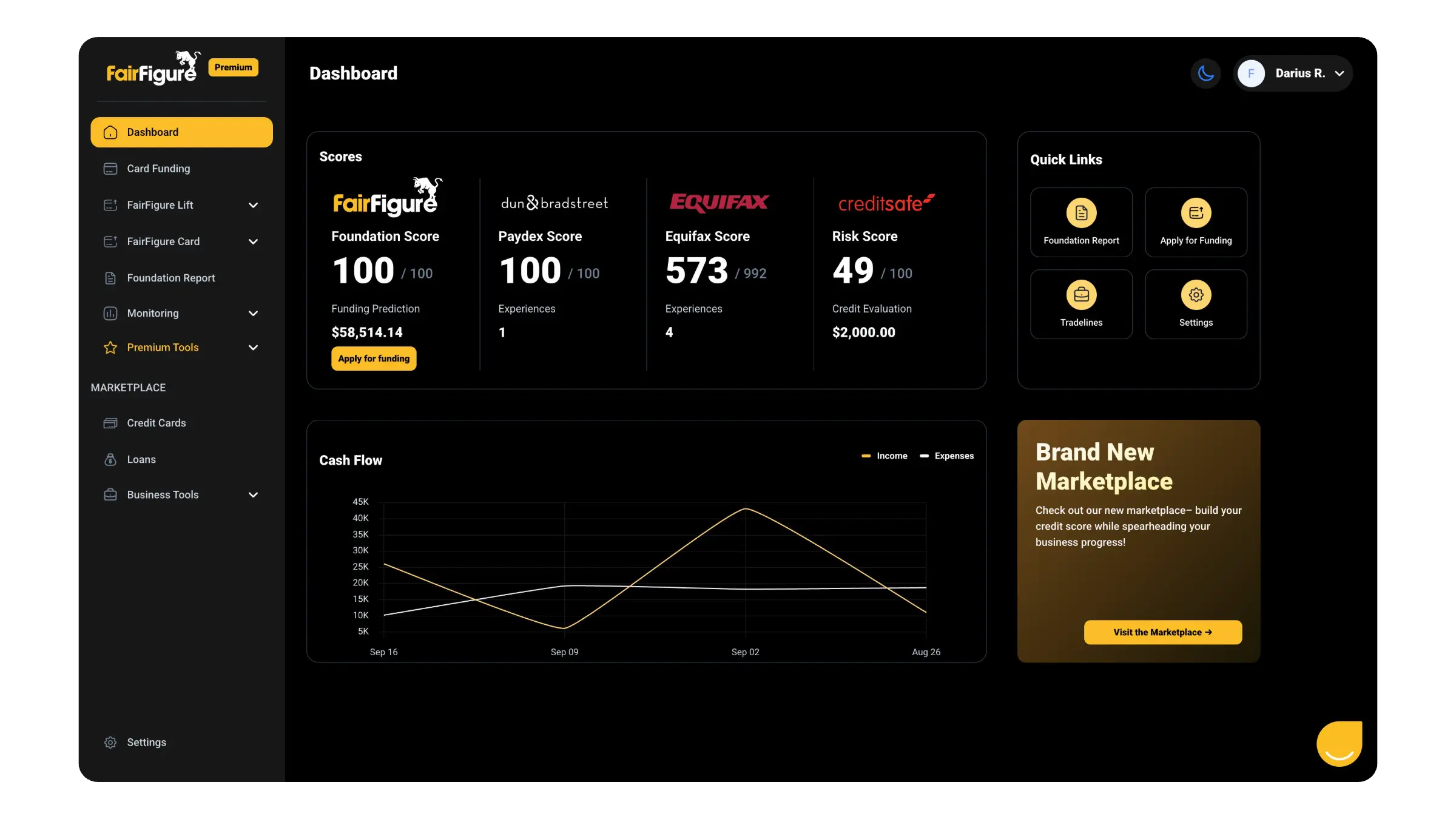
Start your credit journey now with FairFigure